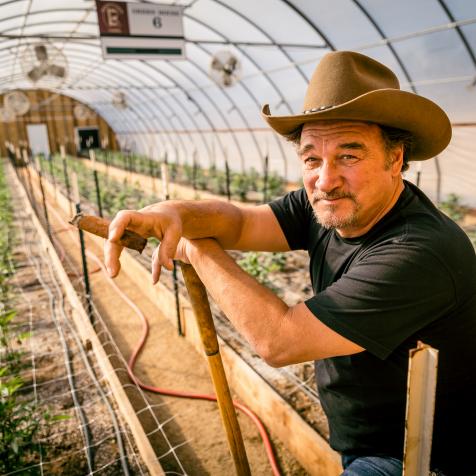
John Kelly
Nebraska Beef Farmers Cash in on Rising Popularity of Meat Substitutes
Nebraska cattle producers are turning from beef farming to plant proteins as demand for meat substitutes rises. Farmers, in what has long been known as the ‘beef state’, are cashing in on the growing popularity of meat alternatives. And the switch could help agriculture tackle environmental issues.
Raising cattle for market is being replaced by cultivating crops, including peas that are turned into pea protein used in so-called ‘fake meats’. More and more farms are converting fertile land from grass pasture and corn for cattle feeds to crops for large meat substitute companies like Beyond Meat or Impossible Foods.
Plant-based burgers have become a staple on the menus of the largest fast food chains and national meat substitute sales are forecast to grow from $12 billion in 2019 to $28 billion in 2025. People are choosing substitutes as healthier options based on doctors’ advice to eat less meat and to use different sources of protein for better nutrition and general health.

krblokhin
Closeup of two uncooked vegan burger patties.
Meat substitute manufacturers also point to their products’ lower environmental impact versus cattle farming, which one scientific study said create 10 times less greenhouse gas emissions than similar beef products. Farmers also testify to pea crops improving soil health, their flexibility as a rotation crop, and lower water usage.
Historically, Nebraska is a staunchly traditional beef cattle state. In 2020 nearly seven million cattle were slaughtered there, generating commercial red meat production of 3.6 million metric tons. Around 20,000 beef cow operations are based on the state’s 23 million acres of rangeland and pasture.
Beef retail sales in the US still far outweigh those from meat substitutes, hitting $30 billion in 2020, but the demand for alternative proteins is steadily increasing. So it is unsurprising that Nebraska state officials have pushed back against substitutes in order to protect traditional jobs.
Nebraska senator Deb Fischer introduced a Real Meat Act to stop imitation products using the word meat in their labeling. Buyers could be fooled into thinking substitutes are in fact meat, she argued. But the plant-based foods industry calls the proposed law an unprecedented power grab, and it is fighting labeling restrictions by introducing its own standards.
This comes at a time when beef demand and prices are at a high. Yet Nebraska’s cattle ranchers are unhappy because the four companies controlling 85 per cent of meatpacking are using their dominance to push down prices from suppliers, while cashing in on beef’s high retail price. And that could lead more farmers into making the switch to plant-based products.
On top of that, a World Health Organization report published in 2015 said that red meat and processed meats cause cancer, including prostate, colorectal and pancreatic cancer. So people who regularly eat beef are considering dietary change as a health necessity.

DarcyMaulsby
Cows graze in Colfax County, Nebraska.
Plant-based burgers are lower in calories, fat and cholesterol than regular beef. And depending on the ingredients – which can include mushrooms, vegetables, nuts, seeds, and pea protein or soy for meat-like texture – they are a source of healthy vitamins, minerals and antioxidants. Replacing meat with fake meat could help to prevent high blood pressure and heart disease, though higher sodium levels are a concern in some products.
But perhaps the biggest benefit comes from replacing beef production itself. Meat makes up almost 60 per cent of greenhouse gas emissions from food production. Beef itself creates almost 100kg of carbon dioxide (CO2) for each kilogram produced.
Global livestock are responsible for 14.5 per cent of all human-caused emissions. Much of cattle’s impact on the environment comes from methane – a greenhouse gas 34 times more potent than CO2 – released by manure and enteric fermentation from cattle burps and flatulence.
Cattle grazing also uses more water and fertilizer, and can involve deforestation to turn land over to pasture or crops to feed animals, compounding the problem. So cutting meat production has a huge positive effect on climate change.
While the perfect diet is far from conclusive – vegan is one option, while flexitarian (eating meat occasionally) is another – most doctors agree that eating less meat and a more plant-based diet is beneficial. Radically reducing cattle’s impact on the climate, and our reliance on meat, may be the only way to keep food production within the planet’s environmental limits.











































































